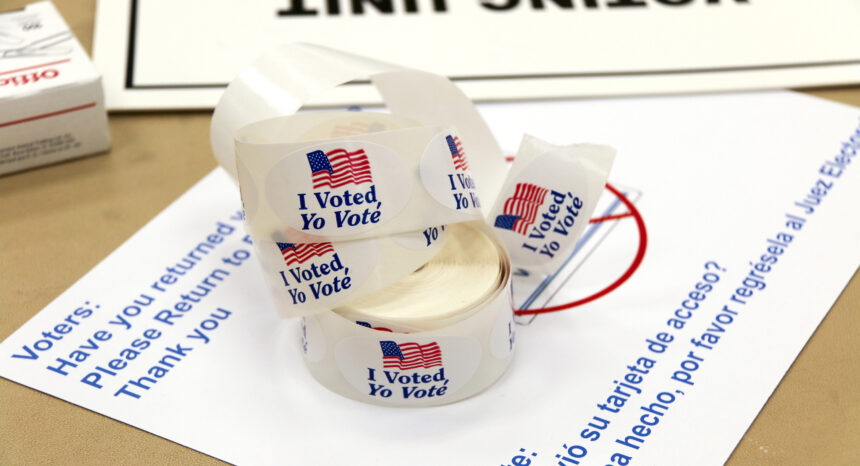A new study highlights the challenges politicians face trying to connect with a multilingual citizenry, including the intensely negative reaction voters who only speak English may have when they see Spanish-language political ads.
Two scholars from the University of Chicago and Yale University teamed up to investigate whether Spanish-language political ads can help Republican and Democratic candidates win over bilingual voters. The good news for candidates: These ads likely will help some of them win a little more support from bilinguals. The bad news: If a candidate’s Spanish ad is broadcast to an English-only audience, support could plummet.
The researchers gathered a group of bilingual adults and a group of adults who speak only English for three separate experiments, each involving viewing an advertisement from one of three men running for national office. Each political candidate had made one video entirely in Spanish and another entirely in English, with both versions being nearly identical except for the language used. All three candidates spoke “excellent” Spanish, according to the researchers.
The three candidates featured in the ads were Jeb Bush, who ran for the 2016 Republican Presidential Primary; Democrat Filemon Vela, who ran for Congress in Texas’s 34th district; and Republican Mike Coffman, who ran for Congress in Colorado’s 6th District.
After watching the Spanish-language political ads, participants were asked a range of questions, including whether they liked the candidate, whether they thought the candidate cared about them and whether they would choose the candidate in a hypothetical election.
The researchers found that:
- Bilingual participants who saw Bush’s and Vela’s Spanish-language ads were about 5 percentage points more likely to choose them. However, Coffman’s Spanish ad did not seem to help him. The researchers said they could only speculate as to why. “The explanation cannot lie in his being White or being Republican, as Jeb Bush shares both those characteristics and the Spanish-language ad worked well for him,” they wrote. “It is possible that Jeb Bush’s Spanish-language appeals are seen as more authentic, perhaps because it is well-known that Bush is married to a woman of Mexican heritage or because Bush is a more proficient Spanish speaker.”
- Coffman’s Spanish ad prompted a “devastating” reaction from participants who spoke only English. They were 18.7 percentage points less likely to pick him after seeing the Spanish ad.
- “The Spanish-language ad causes bilingual subjects to like Bush somewhat more … but has no apparent average effect on whether bilinguals like Vela or Coffman. Monolingual subjects, however, have a strongly negative reaction to both Vela’s and Coffman’s Spanish-language ad.”
- When participants were asked whether the candidates cared about people like them, results were mixed. Bilingual participants who watched the Spanish ads were 2 to 3 percentage points more likely to say the candidates cared about them. On the other hand, English-only participants were far less likely to feel like candidates cared about them after seeing their Spanish ads. Monolinguals were 15.2 percentage points less likely to think Vela cared about people like them. They were 15.5 percentage points less likely to say Coffman did.
- A similar pattern emerged when participants were asked whether they were confident the candidates would make the right decisions about illegal immigration. “The Spanish-language ad increases the confidence that bilingual subjects have in Bush and Vela and decreases the confidence that monolingual subjects have in Vela and Coffman, with the largest punishment reserved for Coffman.”
- Among both Republicans and Democrats, English-only participants generally responded negatively to the Spanish ads.
Check out our write-ups on research showing the benefits of election materials being printed in Spanish and the consequences of bilingual employment policies.
This photo by IIP Photo Archive was obtained from Flickr and used under a Creative Commons license.
How large and long-lasting are the persuasive effects of televised campaign ads?
Who doesn’t value English? Debunking myths about Mexican immigrants’ attitudes
Improving low-income and minority access to mortgage credit after the housing bust


Expert Commentary